AITA for going no-contact with my parents after learning they had lied to me about my allergies all my life?
Growing up, this 19-year-old lived a life shaped by strict boundaries set by loving but cautious parents. Allergies to dairy, gluten, and legumes painted her world in restrictions, separating her from the simple joys of childhood treats and communal meals. While other children reveled in birthday cakes and familiar snacks, she quietly endured a different reality—one where safety meant sacrifice and conformity felt isolating.
But a single moment at her birthday party ignited a storm of confusion and fear that shattered the fragile trust she had in the world around her. As she savored a carefully crafted treat, the sudden panic in her aunt’s eyes revealed a hidden layer of anxiety—a dramatic reminder of the ever-present shadow cast by her allergies and the complicated dance between care and control in her family’s story.
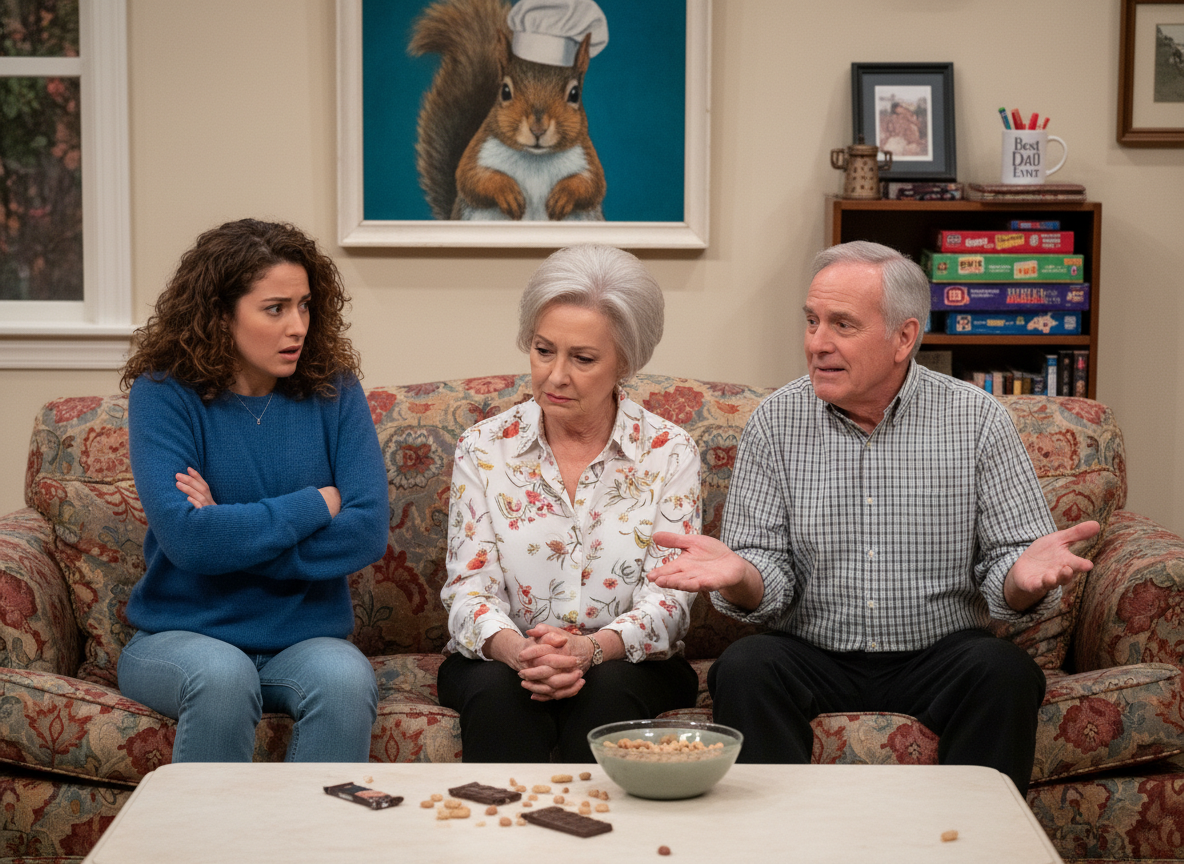
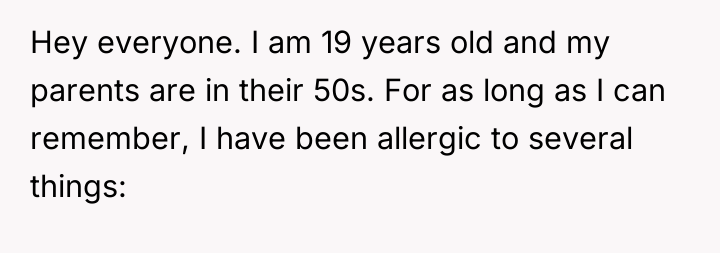




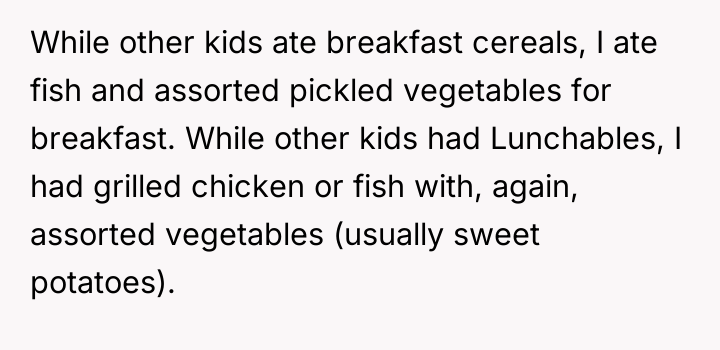
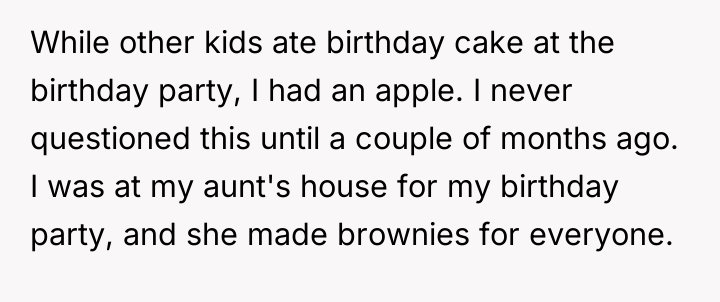
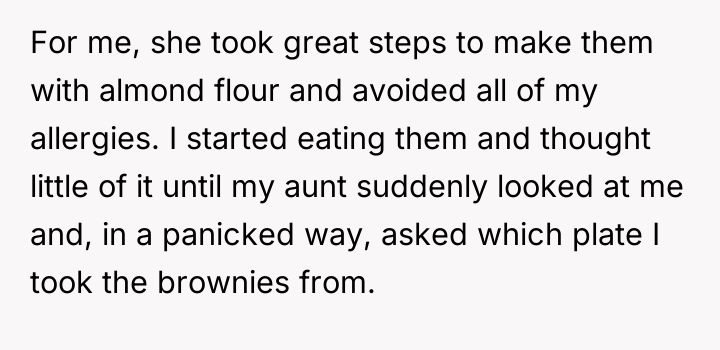
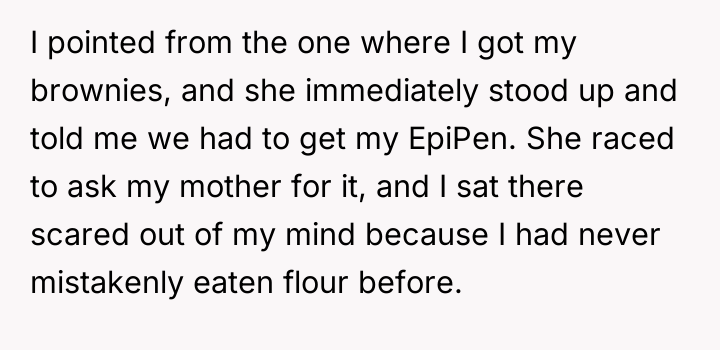
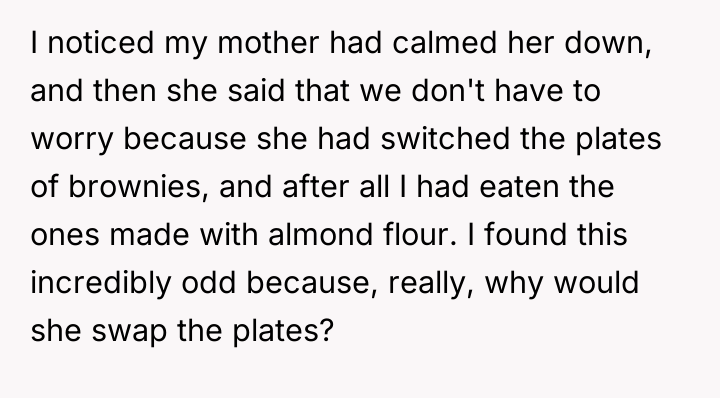
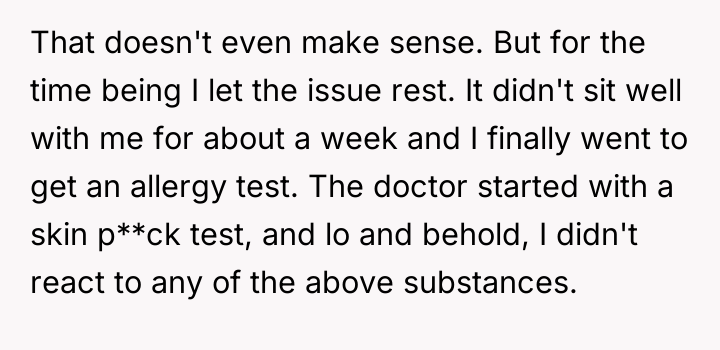
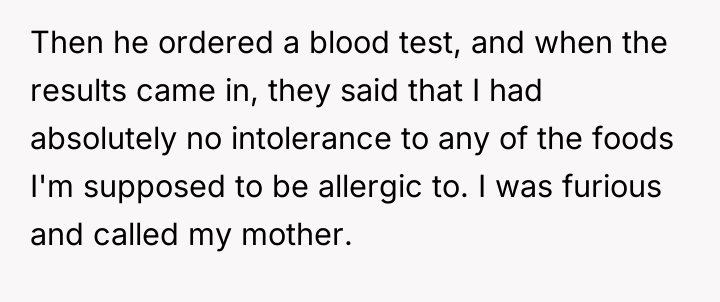
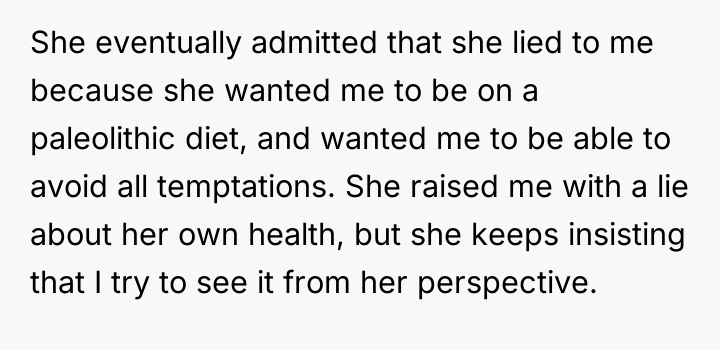
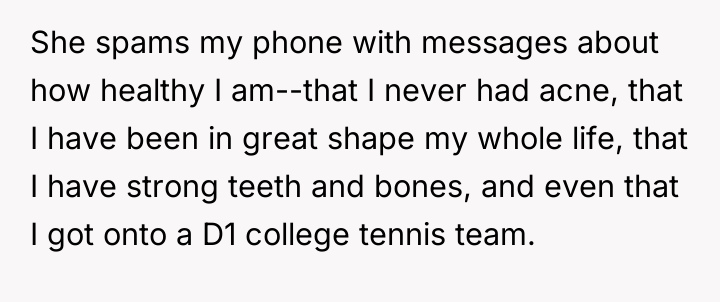
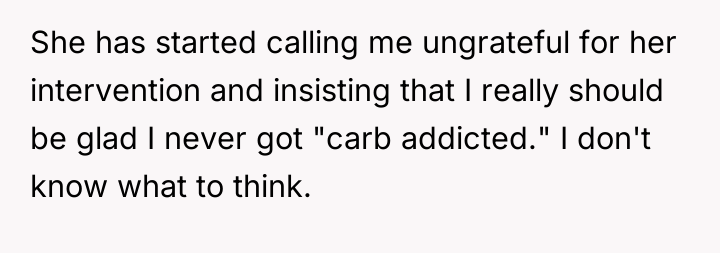
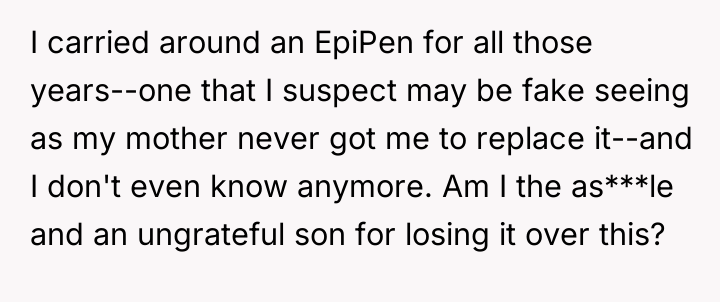
Subscribe to Our Newsletter
As renowned psychologist Dr. Harriet Lerner explains, “One of the most difficult tasks in life is learning to accept that you are not responsible for other people’s feelings or reactions to your boundaries.” While the OP's mother frames her actions as protective intervention, from a psychological standpoint, this constitutes significant emotional manipulation and a severe violation of autonomy, which is crucial to establish by age 19. The mother's motivation, even if rooted in a desire for the OP to be healthy (perhaps stemming from her own anxieties or adherence to a specific diet like Paleo), does not justify the means used. Lying about life-threatening allergies creates a false reality, forcing the OP to live under constant, unnecessary perceived risk (carrying an EpiPen). This action undermines the OP's ability to self-advocate and trust their own reality and sensory input. The subsequent justification that the OP is 'ungrateful' is a common tactic in codependent or controlling relationships designed to deflect blame from the perpetrator onto the victim's reaction. The OP is not an asshole for reacting negatively; the reaction is a natural response to the shattering of fundamental trust. Moving forward, the OP needs to establish firm personal boundaries regarding future communication, especially concerning health matters. The immediate step should involve discarding any medical equipment (like the potentially fake EpiPen) that serves as a physical reminder of the lie, and seeking professional guidance on navigating the damaged relationship with a parent who has demonstrated a willingness to deceive for control.
AFTER THIS STORY DROPPED, REDDIT WENT INTO MELTDOWN MODE – CHECK OUT WHAT PEOPLE SAID.:
This one sparked a storm. The comments range from brutally honest to surprisingly supportive — and everything in between.
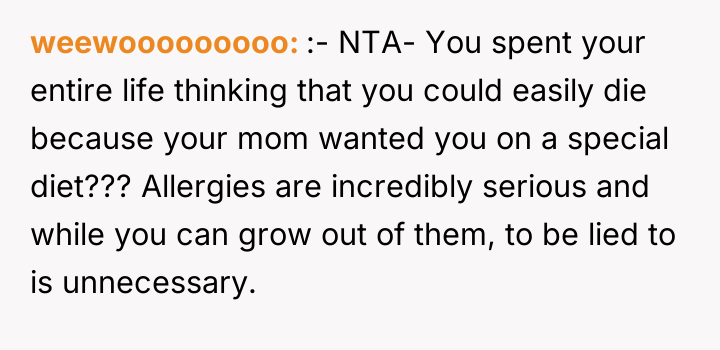
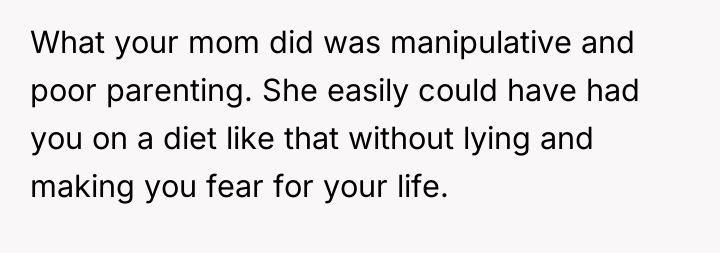

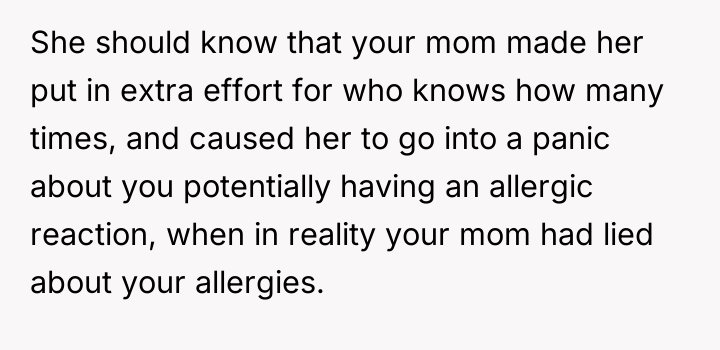
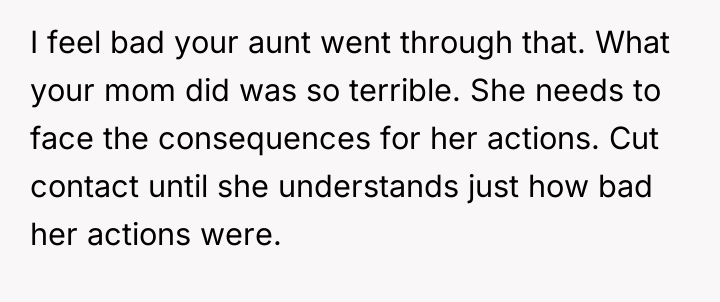
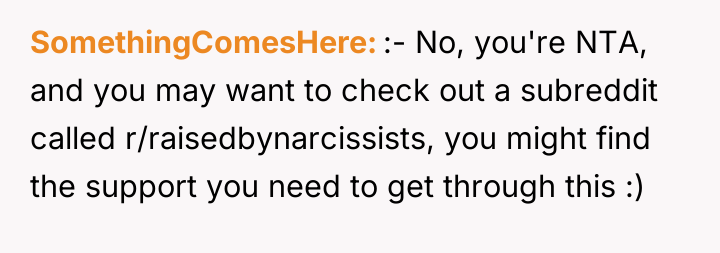
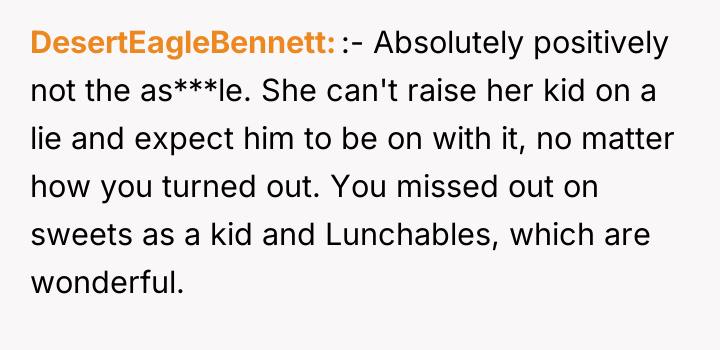
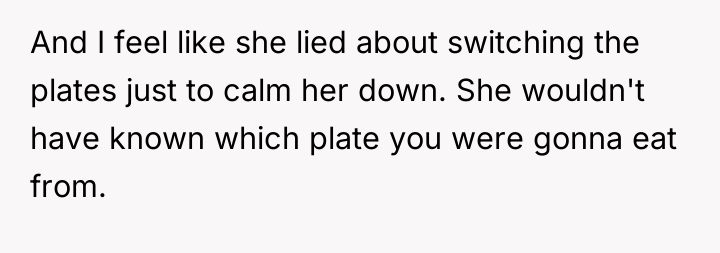
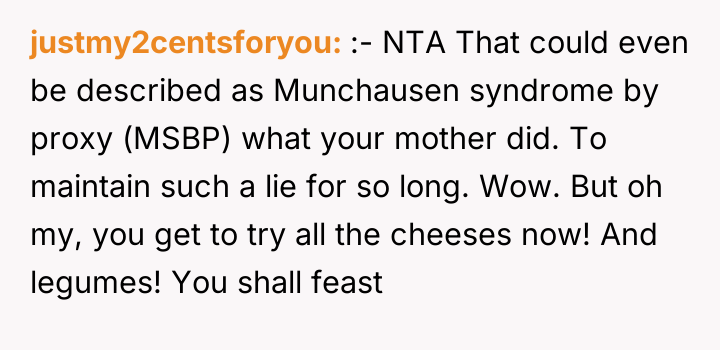
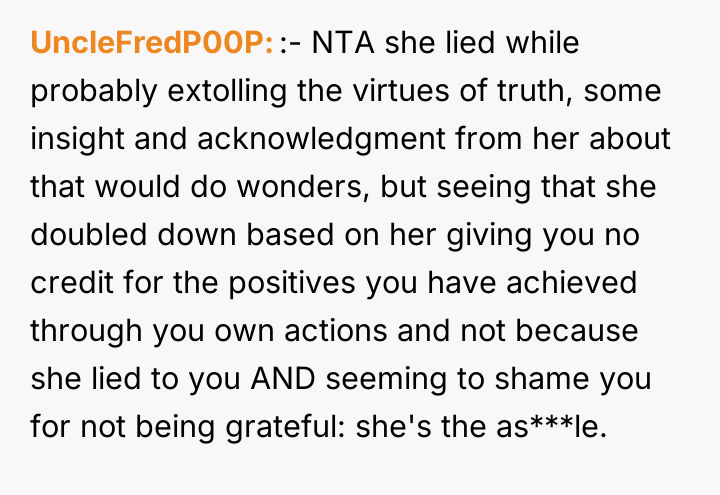
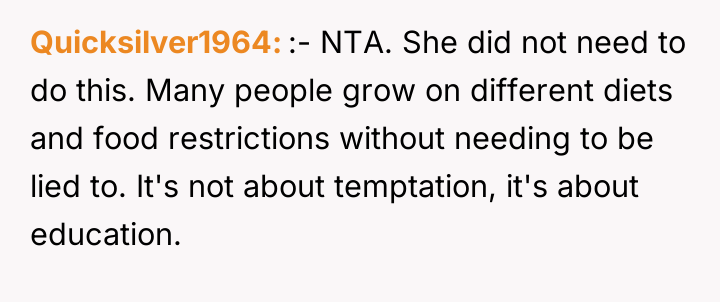

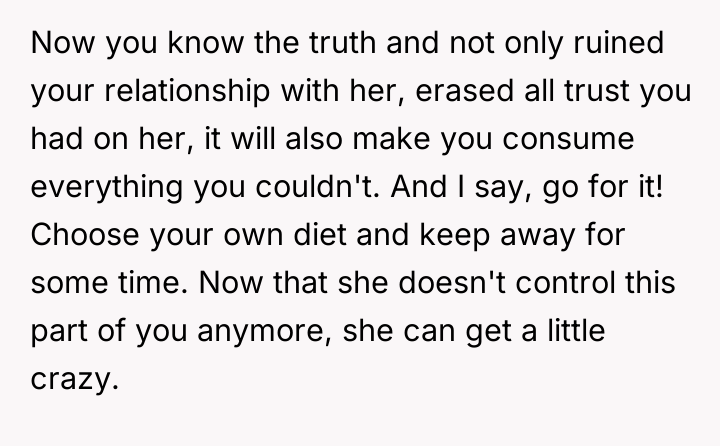
The original poster (OP) is facing a significant breach of trust stemming from a lifelong dietary restriction that has now been revealed as fabricated by their mother to enforce a specific lifestyle. The central conflict lies between the OP's emotional reaction to being deceived for 19 years and the mother's insistence that her actions, however deceitful, were motivated by care and resulted in positive health outcomes for the OP.
Is the OP ungrateful and in the wrong for reacting strongly to the discovery of this long-term deception, or is the mother entirely at fault for using manipulation and falsehoods regarding serious health issues, like severe allergies, to control the OP's diet? This situation demands a decision on whose perspective—the need for truth versus the perceived benefit of control—holds more weight.